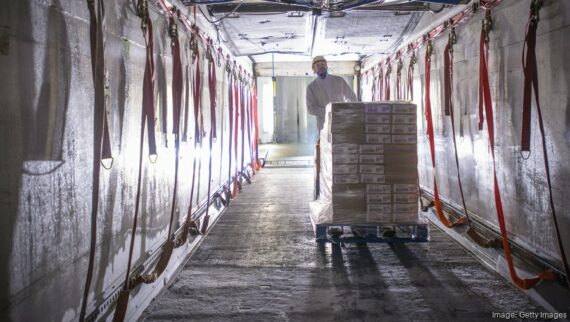MEDIA CONTACT:
Bailey Warlen
(913) 279-0182
bwarlen@kompasskapital.com
Remote work has its advantages, but the value of workplace culture still carries weight
Employee retention tends to improve when employees believe in and live out the culture.
This story originally appeared in the Kansas City Business Journal.
When it comes to the impact of COVID-19 on office workspace, we’ve seen the pendulum swing as far as it will go in the direction of 100% remote work. The power of its weight reflected the necessary, but frenzied, response, immediately sending people home from the office in droves beginning in March 2020. According to the U.S. Bureau of Labor Statistics, the pandemic has resulted in more than one-third of companies across a wide range of industries increasing telework, and 60% of those companies plan on keeping telework options indefinitely.
COVID-19 taught us that we can work remotely and remain efficient; we appreciated the ability to be flexible and the opportunity to spend extra time with our families. But it also reminded us of the value workplace culture has on its employees and why it’s a key contributor when it comes to individual and company performance as well as attracting new customers. Here are three reasons why culture is still crucial.
1. Culture is key when it comes to hiring and attracting top talent
When hiring employees, skill set and qualifications account for significant consideration when interviewing a candidate – and they always will be. But when you approach the hiring process with another factor in mind, you have an opportunity to earn a significant return on investment.
Employee retention tends to improve when employees believe in and live out the culture. They become your company’s own brand advocates, excited to tell friends and family what a great company they work for and to share the perks of the job. These accolades naturally attract new talent without a dime spent on recruitment advertising. Local and even national awards such as “Best Places to Work” garner additional coverage with culture being a driving force behind which companies receive the recognition.
“‘If you build it, they will come.’ I’m referring to building a great culture and showing it to the world,” said Lee-Anne Edwards, CEO and founder of talent matchmaking firm OneinaMil. “This will attract people with matching attitudes and, once you hire them, they will stay with you because they’ll actually like showing up on Monday mornings.”
2. A strong, vibrant culture becomes a selling point not just to candidates, but to clients
In late April, our production team sat down with a client of ours, and I recently saw the interview. One of the quotes I really honed in on was the manager talking about his first impression of the company, “It’s different from other (companies) I’ve worked with before; the energy is different. It made the decision (to work with them) rather easy.”
Before this client sat down to discuss a potential partnership; before he listened to any sales pitch, he picked up on something intangible. He felt the energy, the camaraderie. It was unlike anything he had experienced with a partner before, and ultimately, it was his reason for choosing us.
3. Trust your employees to make the best decision for themselves and therefore, the company
One of my favorite things to share with potential candidates during the hiring process, and one that always garners an interesting look, is when I tell them that we don’t work on clock time. If I come in, buckle down and get everything I need to get done by 3:30 p.m. feeling satisfied with my day’s work, I don’t stay just so I can say I worked until 5:00 p.m. Where’s the value in that?
Allowing your teams members the option of a hybrid schedule leads to a stronger connection to their peers that makes them want to work harder, according to 71% of 2,800 workers and business leaders polled in this Citrix survey. And 55% of U.S. adults say the ability to work from home or have a more flexible schedule is more important to them now than it was before the pandemic, according to Bankrate’s 2022 Job Seeker Survey.
This approach applies to all our employees; we trust that if we give them the freedom to make a schedule that works for them, we find that they want to succeed. It allows our leadership team to get a real sense of our employee’s strong work ethic without the need to intervene or push.
As the pandemic dust begins to settle, what we’re seeing now is the pendulum balancing itself out. Culture is still crucial in a post-pandemic workforce when it comes to hiring and retaining top talent and attracting new customers that can drive revenue; and trusting your employees to choose a flexible schedule and get the job done is a perk that benefits your employees and your company.
About Dynamic Logistix
With more than $1 billion in managed freight under TMS management, Dynamic Logistix is always looking for reliable carriers to partner with. For more information, please visit our website.
Dynamic Logistix is a third-party provider of shipping and freight solutions that combines a world-class technology platform with stellar personal service. Our technology, our culture and our connections with shippers allows us to provide premium shipments to our carrier network.





